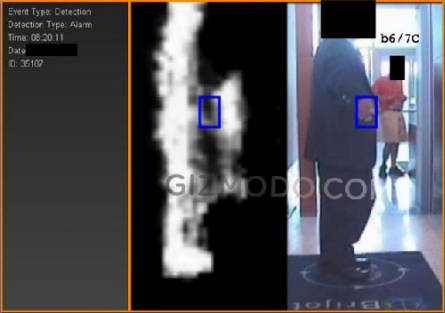Body scanner saved 35,000 'naked' images

This is very shocking stuff:
At the heart of the controversy over "body scanners" is a promise: The images of our naked bodies will never be public. U.S. Marshals in a Florida Federal courthouse saved 35,000 images on their scanner. These are those images.
A Gizmodo investigation has revealed 100 of the photographs saved by the Gen 2 millimeter wave scanner from Brijot Imaging Systems, Inc., obtained by a FOIA request after it was recently revealed that U.S. Marshals operating the machine in the Orlando, Florida courthouse had improperly-perhaps illegally-saved images of the scans of public servants and private citizens.
So much for not being able to store, print, transmit or save the image. If you believe that, you'll believe anything ... idiots.
Here's an example of the images stored:

Note: Notice in the above image how the scanner manages to scan the guy in the background - how much energy are these scanners giving off?
it's worth noting that the gen-2 millimeter wave scanner doesn't output as detailed an image of the human body as the scanners currently in used at airports. For comparison, the image below shows the sort of output from a typical airport scanner.
Whether you're pro these scanners or not (and putting the potential health risks aside), the idea that images can be stored on them for later viewing is disturbing. If the mechanism is there to save an image, then it'll be used, and even if that mechanism doesn't exist, it's not hard to record an image that's displayed on a screen using a camera.
Additional thoughts on the TSA's screening process on Lawgarithms by my colleague Denise Howell.
How happy are you to use these scanners? What about your significant other? Children?